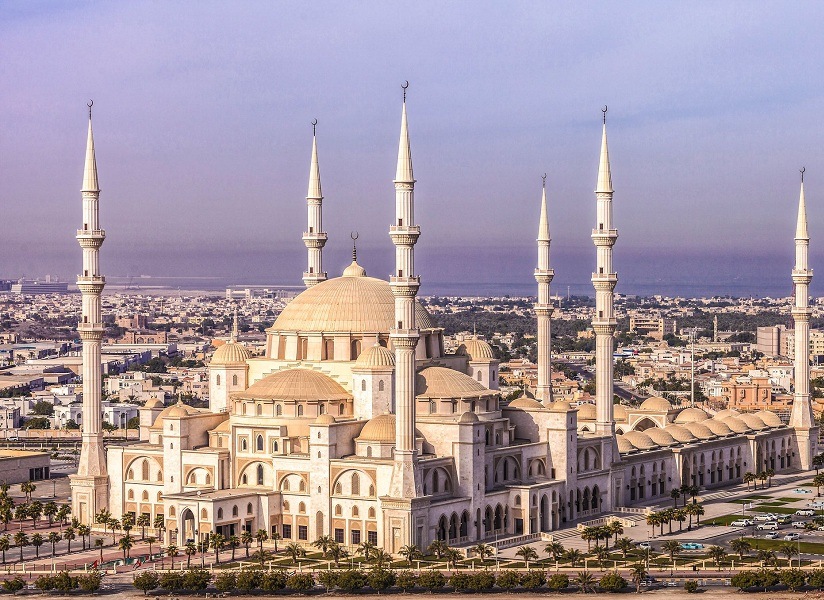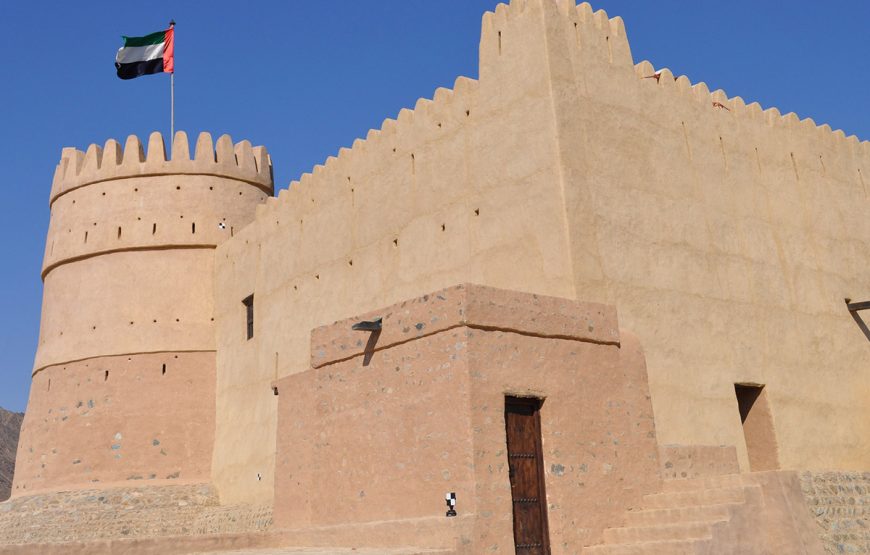Fujairah
Fujairah's historical importance goes back to 3000 B.C. when the area was inhabited by herders and fishermen. It was then named as the Land of Titans or 'Ard Al Jababerah'. It is unofficially called 'the Jewel of the Middle East'.
Wadi Al Wurayah waterfalls and Ain Al Madhab Gardens are major touristic attractions in Fujairah. Wadi Wurrayah, a 31,000-acre nature reserve, lies between Khor Fakkan and Bidiyah. The site is the UAE's only waterfall. Other sites include the UAE's oldest mosque Al Bidya Mosque and the Heritage Village.
Fujairah has many beaches and beach-side resorts including the five-star Le Méridien Al Aqah and Fujairah Rotana.
It does not have a desert; it is mostly mountainous, covered by Al Hajar Mountains which separates the emirate from the rest of the country.
Fujairah is cooler than the rest of the UAE. It is popular for water sports like swimming, sailing, jet skiing, fishing.
Along the road to Fujairah from Dubai, vendors and buyers thrive the Friday market. It is a good place to buy locally produced fruits and vegetables and other ethnic items such as pottery, rugs and even some Chinese goods.
Travel south passing the magnificent restored fort at Bithnah, one of the many forts and watchtowers that once protected these routes through the mountains, to the mainly low-lying Fujairah City.
Take time to explore Al Hayl Palace, which was once the summer residence of the ruling family of Fujairah.
Fujairah Fort, reputedly 360 years old, stands on a slight incline at the edge of date gardens in Fujairah city. These forts are often identified as Portuguese but many were older in construction.
Fujairah Heritage Village has a good selection of traditional houses ('Arish) and fishing boats (Shashah) made from palm fronds, providing an interesting backdrop to its living reconstruction of traditional life in the mountains and on the shores of the east coast.
On weekends in winter, you can witness bullfights, practised as a recreational sport.






